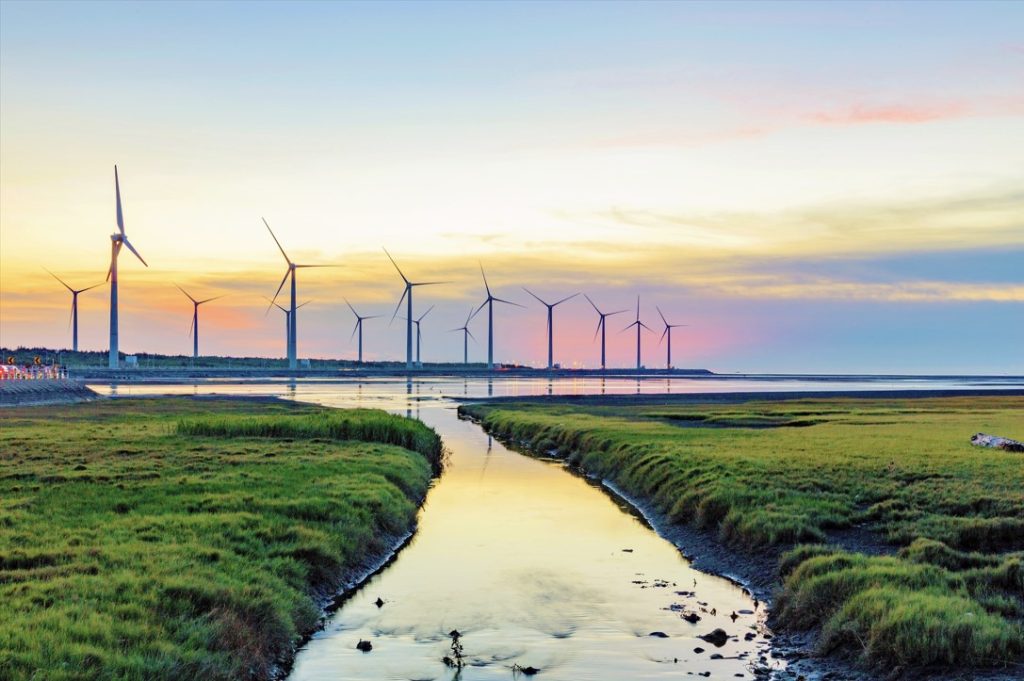
By Jeremy Seow
Taiwan’s transition to renewable energy has set the market apart as a global leader in sustainability. With its steadfast commitment to achieving net-zero emissions by 2050, Taiwan has implemented progressive policies that incentivize renewable energy development.
This focus on sustainability comes with robust insights into communication strategies that engage diverse stakeholders within Taiwan. I spoke with Marcus Wang from One For All Public Relations, Allison’s preferred partner agency in Taiwan, on some of the strategic communications learnings from Taiwan’s journey to net-zero.
Q: How has Taiwan’s culture of advocacy and activism influenced environmental and sustainability communications in your market?
A: Taiwan’s culture of advocacy and activism has significantly shaped environmental and sustainability communications in several key ways.
First, to achieve the 2050 net-zero target, the Taiwanese government has set ambitious goals for renewable energy integration and implemented policies to promote its commercialization.
For example, in the case of offshore wind power development, which has been strongly promoted over the past five years, the promotion occurred in stages. The stages involved diverse stakeholders, such as local residents, fishing organizations and environmental groups. This extensive involvement requires comprehensive communication efforts, including public hearings and environmental reviews, which extends the communication timeline beyond other industries.
Secondly, Taiwan’s dynamic media environment, with numerous active environmental organizations and media outlets, intensifies scrutiny on controversial issues and inflammatory images. This underscores the importance of effective issue framing and crisis management, such as for energy developers facing potential negative media attention.
Q: Greenwashing – a catch-all term for actions that misrepresent organisations’ positive environmental impact – is a global issue for sustainability communications. What challenges does greenwashing create for PR practitioners?
A: While Taiwan does not have specific laws targeting greenwashing, the practice is regulated under provisions against false advertising in the Fair Trade Act. This presents significant ethical challenges for PR practitioners working with environmental organizations to enhance reputation and manage crises effectively.
To mitigate reputational risks, we recommend integrating sustainability efforts with core business activities. For instance, paper companies can invest in forest resource maintenance, while offshore wind developers can focus on marine ecological conservation. The narratives created from these efforts would thus be regarded as authentic to the respective organizations’ environmental mission.
This is a reputation-building approach that not only responds directly to industry stakeholder expectations, but also commits to long-term, measurable sustainability initiatives – rather than one-off gestures. Such sustained efforts build public trust, while reducing concerns about greenwashing.
Q: Can you highlight successful campaigns related to clean energy in Taiwan that align authentically with brand-building objectives?
A: One notable example is Sunnyfounder, a pioneering green energy retail company and community power plant platform in Taiwan. It has an innovative model that facilitates the installation and management of solar panels by connecting “roof providers” with “investors.” Through a crowdfunding-like approach, the public is invited to invest in solar energy infrastructure. Other than contributing to the net-zero goal, these “investors” receive fixed annual returns from electricity sales.
Sunnyfounder also engages in charitable activities where companies purchase solar panels, with proceeds donated to disadvantaged groups. These efforts have earned recognition from Taiwanese companies and government sustainability departments.
Q: What lessons can global brands learn from Taiwan’s communication of its ambitious renewable energy goals and net-zero emissions target?
A: Global brands can gain valuable insights from Taiwan’s approach, particularly in evaluating stakeholder attitudes and effectively managing issues.
Despite strong societal support for green energy goals, diverse stakeholder concerns during implementation require careful assessment and strategic communication. Though conducting thorough assessments and research are required, communicators can shape effective communication strategies while pre-empting and mitigating the impact of known risk factors.
Furthermore, Taiwan’s emphasis on creating win-win models in the journey to net-zero demonstrates effective stakeholder management – a quality all effective communicators should aspire to. For example, brands in the energy industry often involve local communities in renewable energy projects, while maintaining strict environmental standards that protect communities and natural environments. This approach ensures the building of lasting partnerships and enhances the likelihood of operational success.
To find out how Allison can partner your brand in sustainability communications throughout the Asia-Pacific region, please reach out to Jeremy Seow ([email protected]).
Jeremy Seow is regional chief operating officer + head of client experience for APAC, based in Singapore.